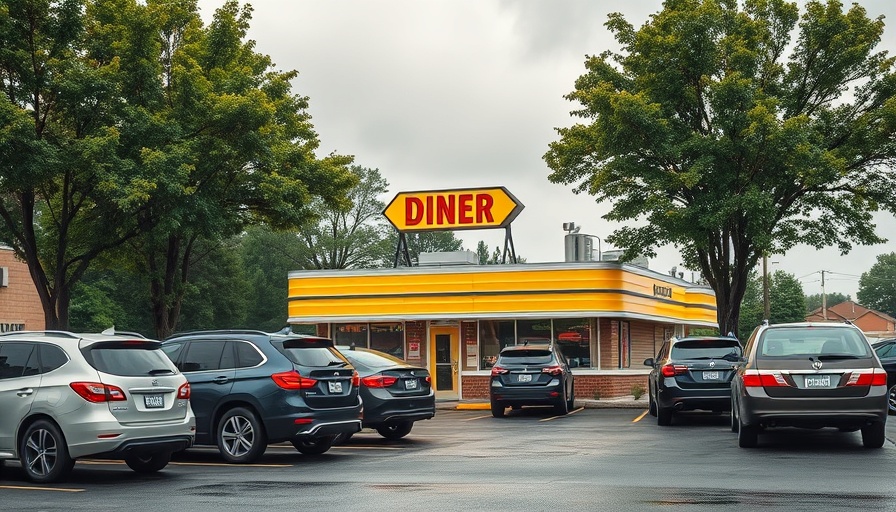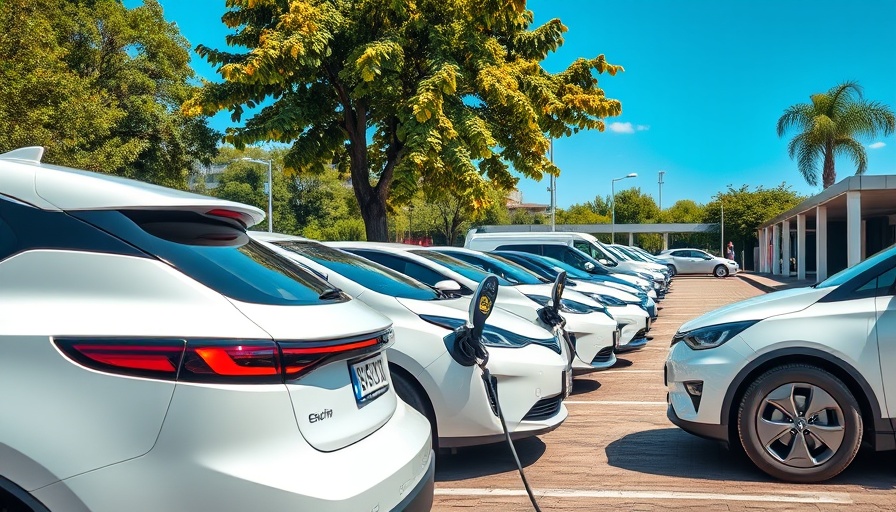
The Waffle House Index: A New Indicator of Change
When we think of Waffle House, many of us envision late-night meals, comforting food, and a community space open in times of need. The restaurant chain has long been a lifeline for communities during natural disasters, with the "Waffle House Index" serving as an informal metric for gauging storm impact. Now, this beloved establishment plans to bolster its role in the community even further. By installing electric vehicle (EV) charging stations at numerous locations across the southern U.S., Waffle House is stepping into a new area of advocacy and sustainability that speaks volumes about the changing landscape of transportation.
Championing Change Through Collaboration
This new initiative isn't just about adding charging ports; it's a calculated move that reflects a larger narrative about sustainability. Waffle House’s collaboration with BP Pulse, a division of the oil giant focused on EV infrastructure, underscores the importance of partnerships in advancing sustainability goals. By actively promoting vehicle electrification, Waffle House is not only supporting a shift towards reduced fossil fuel reliance but is also making it easier for travelers to embrace eco-friendly vehicles while enjoying their meals.
Understanding the Corporate Sustainability Shift
The decision to install EV chargers comes amid a politically charged climate surrounding electric vehicles. While opposing voices have risen in politics, Waffle House's brave move signifies that sustainability and corporate responsibility transcend political affiliations. Small-scale hotel owners, eco-lodge operators, and Airbnb hosts should take note: demonstrating commitment to sustainability—like Waffle House's eagerness to implement EV charging—can appeal to eco-conscious customers and enhance brand reputation.
Why This Matters for Boutique Hospitality Professionals
What does this mean for those within the hospitality sector, especially for boutique and eco-conscious operators? Waffle House’s bold step could serve as a blueprint for integrating sustainability into customer experiences. As travelers become increasingly aware of their carbon footprints, providing accessible charging options could attract a market eager to maintain their lifestyle without compromising their values. Offering amenities that align with sustainability goals—such as EV chargers—positions your business as part of the broader movement toward greener practices.
Tapping Into Local and Global Trends
Waffle House’s initiative signals a shift in consumer preferences, influenced by a mixture of climate awareness and economic need. For the boutique hospitality market, this is an opportunity to align with these trends. Beyond charging stations, operators can integrate off-grid solar solutions, sustainable local sourcing, and urban farming practices to create a fuller experience. These practices resonate deeply with guests looking to stay in places committed to reducing their ecological footprints.
What Future Trends Can We Expect?
Going forward, establishments like Waffle House will likely spearhead more innovative solutions geared towards sustainability. This could include the use of solar-powered businesses, similar to how many eco-lodges are beginning to operate. Incorporating these elements into hospitality strategies can give travelers motivation to choose more sustainable lodging. With this mindset, hotels and guesthouses can foster community support while promoting eco-friendliness.
Could This Be a Turning Point for EV Charging Access?
As Waffle House installs EV charging ports, it represents a pivotal moment not just for the restaurant but also for the broader push towards electrification. With stories arising from disaster recovery and now environmental stewardship, the restaurant may just pave the way for a future where sustainability in hospitality isn’t just an option but a necessity. This opens dialogues about how businesses should adopt similar strategies to nurture a sense of accountability towards our planet, encouraging guests to make conscious choices.
By revealing the transformative potential of sustainability-focused infrastructure, Waffle House is redefining what it means to be a community partner. This may indeed be the catalyst other businesses need to commit to similar sustainability goals. As we live in times when consumers demand accountability from the brands they support, the Waffle House model could change the narrative on what it means to be a corporate citizen.
Take the Leap: How Your Business Can Embrace Sustainability
As we reflect on these insights, hospitality professionals, now is the time to take action! Consider how you can integrate sustainable practices into your operations. Whether it's exploring opportunities for off-grid solar setups or offering paper-wrapped meals, every small step matters. Align your business with green goals, and together, let’s create a hospitality industry that champions eco-conscious practices for years to come.
 Add Row
Add Row  Add
Add 




 Add Row
Add Row  Add
Add 

Write A Comment